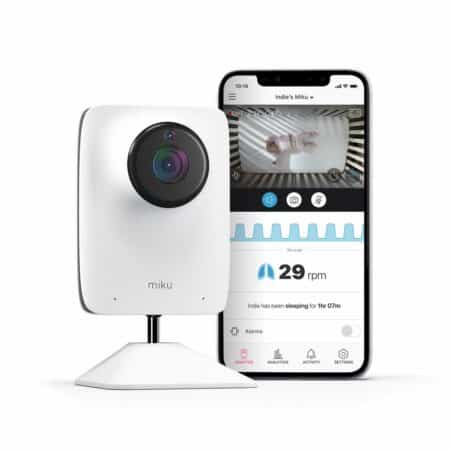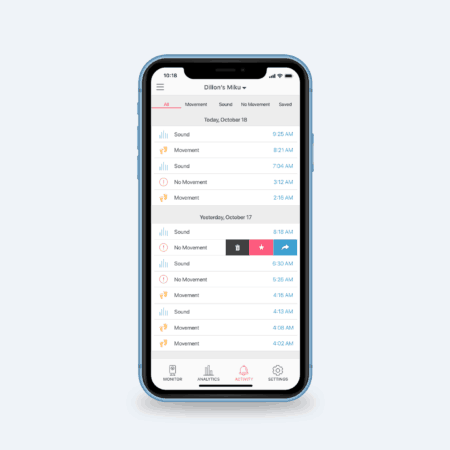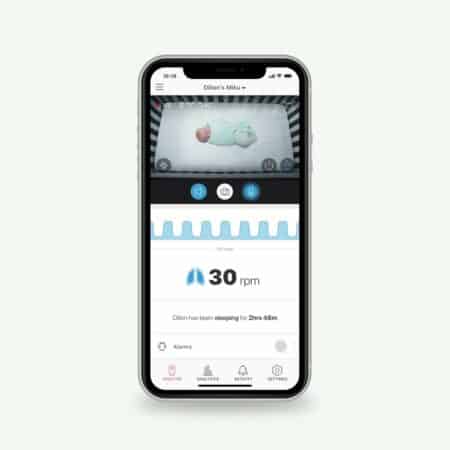
Auto Amazon Links: No products found.
Miku’s sleep reports aren’t as nicely displayed in the app as Nanit, but they are functional. See picture below.
Perhaps the most controversial part of the Miku is its breathing monitoring. Miku touts real-time breath tracking, displaying a live “respirations per minute” along with a graphic showing breaths (see below).
Here’s why it’s controversial: the Miku is not a FDA-approved medical device. As a result, accuracy is not guaranteed, nor should it be relied upon to track a baby with health issues.
We believe breathing monitors cause more harm than good—they tend to provoke anxiety among new parents . . . and, as a new mom or dad, you are already sleep-deprived as it is.
All this smart video monitor innovation is encouraging—getting a baby to sleep has been an age-old dilemma, spawning an entire universe of books, videos and web sites. Heck, we even spend 40 pages in our Baby 411 book on sleep advice (the most challenging part: adjusting your sleep expecta- tions as baby transitions from newborn to a one-year-old).
So marrying all the latest research to actual baby sleep analytics is most promising.
On the dystopian side, you may wonder what these companies will do with all the data they are compiling on your baby and her sleep habits. While each company has a decent privacy policy in our opinion, there is nothing that keeps either from being acquired by a Google or Facebook. And what that would mean is far from certain.
At this point, the Miku Video Baby Monitor seems more promise than reality—the company says it will update the software to roll out new analytics and sleep tips over time.
Rating: Not yet.



 We obsess over gear for families . . . so you don't have to. Baby Bargains has one mission: help you find the best gear for your family and home with unbiased reviews by experts with 20 years of experience. At prices that don't break the bank. When you purchase a product from links on this site, we make a small affiliate commission. Learn more
We obsess over gear for families . . . so you don't have to. Baby Bargains has one mission: help you find the best gear for your family and home with unbiased reviews by experts with 20 years of experience. At prices that don't break the bank. When you purchase a product from links on this site, we make a small affiliate commission. Learn more 
